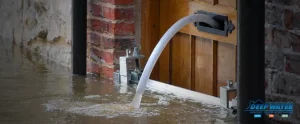The COVID-19 pandemic has brought the entire world on edge. After all, it has been almost a century since mankind last faced a deadly disease and not everyone was prepared for the ensuing result. As the number of deaths surged, one alarming possibility that arose is the alleged link between water and COVID-19.
Before the initial research into this officially began, there was already a growing fear among the populace. Rumors were spreading like wildfire that COVID-19 can be spread through water. People were being asked to be extra mindful of their water getting contaminated and of the idea of wastewater COVID. The immediate question then was: can COVID-19 be really transmitted through water?
Important Facts About COVID-19
Two years into the pandemic, the public is still wary about the possibility of COVID in water, especially in this age when there is an obvious over-saturation of information on the Internet. Clarifications are needed regarding this aspect of the virus and how this can affect the daily lives of people.
Meanwhile, here are the important facts that you need to remember about COVID-19:
1. The virus attacks the respiratory system.
When a person gets infected with this deadly virus, the respiratory system will be the main target. Thus, common symptoms will include difficulty in breathing paired with high fever, loss of taste, muscular pain, and chills.
Severe cases can lead to pneumonia and other complications. This is why old people and those with comorbidities are vulnerable and may need special attention.
2. COVID-19 spreads through the air.
The COVID-19 virus can spread by air and this is the reason appropriate preventive measures were quickly introduced. Federal health officials strongly recommended the wearing of face masks, especially for people who have not been fully vaccinated.
Additionally, the Center for Disease Control (CDC) recommended that those who aren’t fully vaccinated yet should wear a well-fitted mask that can cover their nose, mouth, and ears. They also suggested that large gatherings be avoided and for people to continue practicing social distancing.
3. A face mask alone is not enough to stop COVID-19.
Although a cloth mask or one used in household cleaning and construction can provide some protection against COVID, it is not an effective way to prevent the spread of the disease. That’s because it has a lower-grade material when compared to the more effective surgical mask.
Aside from wearing a face mask, touching your face is not advisable because the virus can also be spread by hand. If you can’t keep yourself from touching any part of the face, wash your hands afterwards with clean water, alcohol, or a hand sanitizer.
Along with thorough hand washing, physical distancing should be strictly observed. Other safety guidelines that may be implemented in your area are likewise worth following.
Can COVID-19 Spread Through Water?
According to the EPA, there have been no confirmed reports about COVID 19 and water contamination. In short, the virus is not transmittable through water.
Additionally, medical professionals reiterate that there is no such thing as COVID in tap water. Rumors about this are growing though, so there’s a serious need for careful education so people can be assured that the rumors are baseless. To date, there are also no experiments showing a water test positive for COVID result.
However, the EPA recommended that proper wastewater management and sanitation practices be observed to prevent the spread of the virus. This means that people who work in water-based industries – plumbers, cleaners, deep water mitigation professionals – should undergo regular check-up because COVID in tap water is in the realm of possibilities although the chances are slim.
Importance of Sanitation and Clean Water
The World Health Organization asserts that while wastewater COVID is not possible, there is a strong need for clean water, especially during this pandemic. Medical experts explained that access to clean and safe water will help keep the virus at bay and minimize the risk of infection. Unfortunately, this is not the case in every part of the world; in the US alone, sanitation and clean water have become strong and alarming issues.
The WASH Campaign
In response to the global pandemic, researchers and medical professionals are urging everyone to give importance to water, sanitation, and hygiene. In this regard, the WASH (Water, Sanitation, and Health) campaign acquires greater significance. The effort, begun by the Water Supply and Sanitation Collaborative Council, seeks to gain global support and action in ensuring that access to proper sanitation and clean water can be made available to everyone.
Among others, the WASH campaign aims to achieve the following:
1. Disease Prevention
To provide quality health services, protect staff and patients, and prevent disease transmission, it is essential that water, sanitation, and hygiene services are available in all health care facilities. Even as these are ensured, rumors about COVID in water should also be dispelled through proper information dissemination.
2. Promote Proper Hygiene Awareness
The use of behavior modification techniques can increase the frequency of essential hygiene practices. The Global Handwashing Partnership has many resources that can be used to mobilize civil, public, and private sector support in helping develop messaging materials to promote proper hygiene as its way of responding to the COVID-19 pandemic. Through effective communication, unverified information like water test positive for COVID reports can easily be countered.
3. Provide Low-Cost Water Service
The WASH campaign seeks to give access to water kiosks/water access points in rural areas so rumors about COVID in water can be clarified. It also aims to promote the construction and operation of small water treatment plants – access points that can deliver water in rural locations; and the operation of trucks for water delivery services with adequate water storage mechanisms.
Deep Water Emergency Services and Mitigation Guarantees Effective COVID-19 Decontamination
Deep Water Emergency Services and Mitigation is available for those who need assistance in availing ofCOVID-19 decontamination Denver, CO, services.
DWESR offers immediate and effective decontamination techniques using highly-specialized equipment to help keep your house and property properly sanitized so COVID 19 cases can be avoided. Call us now to avail of this service.






